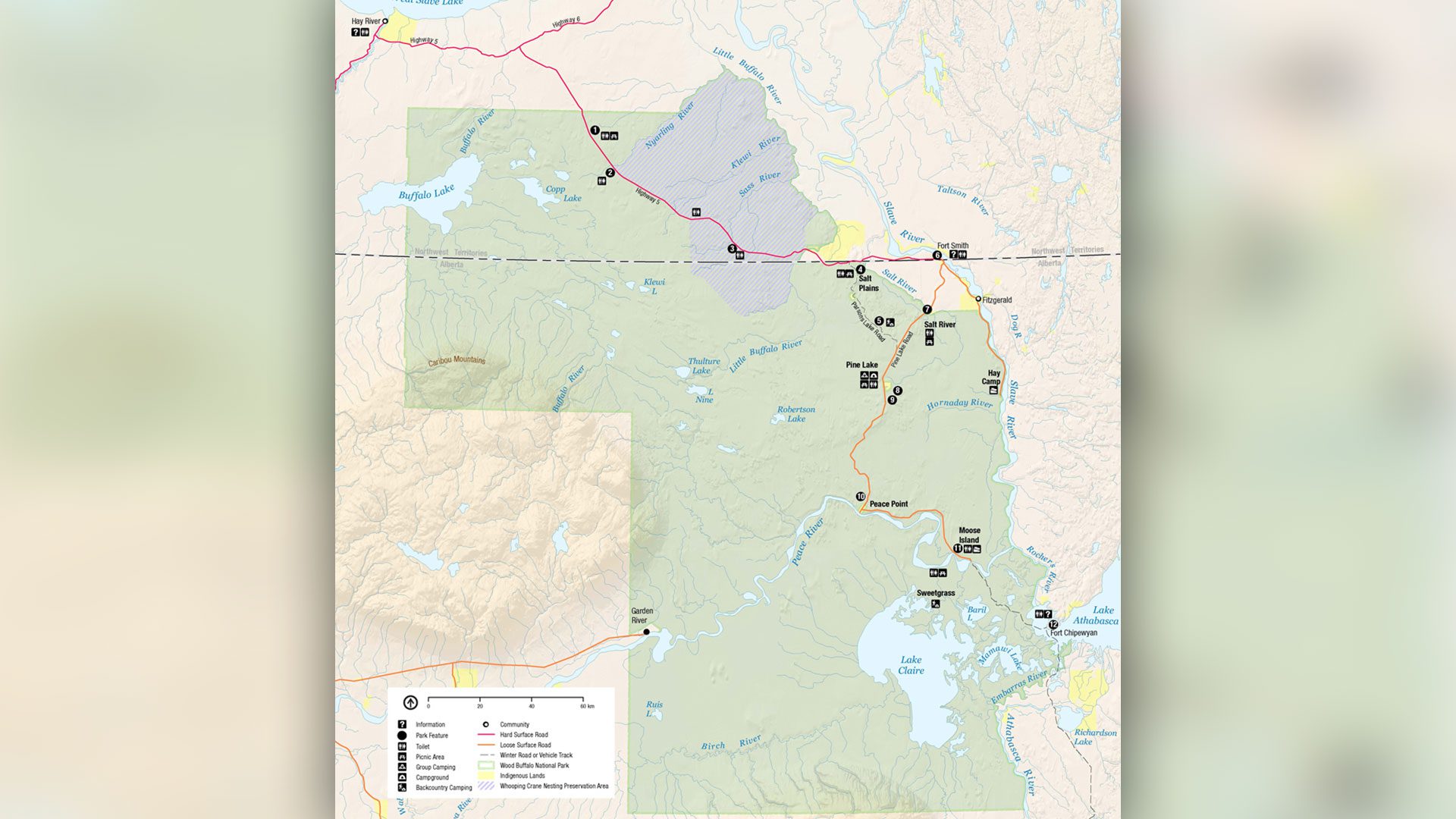The Athabasca Chipewyan First Nation (ACFN) in northeastern Alberta is demanding a public apology from the Canadian government for forcibly relocating their people from an area that is now known as the Wood Buffalo National Park nearly 100 years ago.
“The impact of this violence by the federal government has been felt by generations of Nation, and continues to this day,” said ACFN Chief Allan Adam in a news release.
The announcement follows the publication of the report, A History of Wood Buffalo National Park’s Relations with the Denésuliné.
The report highlights stories from elders that tell evidence of treaty violations committed against AFCN by the federal government.
“The Park’s 1922 creation, 1926 expansion, and management throughout the 20th century eroded Dené rights and sovereignty over a significant portion of their territory and damaged all aspects of the community’s health and well-being, governance, kinship networks, and relations to the land and water,” the report says in the introduction.
Wood Buffalo is Canada’s largest national park and was created in 1922 to protect the last herd of wood bison in the area.
Athabasca Chipewyan First Nation Demand Justice from Federal Government for Forced Relocation at Wood Buffalo National Park. Read more at: https://t.co/1Grpr7JKGg pic.twitter.com/PuVkSBb5Q9
— Athabasca Chipewyan First Nation (@ACFN_KaiTaile) July 20, 2021
ACFN member Leslie Wiltzen said his family was among the many that were forced from their homes.
“When those bison crossed the Peace River and the park boundary was expanded, the Athabasca Chipewyan were forced to leave without any consultation,” Wiltzen told APTN News.
“Park wardens would show up with RCMP and say that you had to leave; really there was no choice and that’s how a lot of people were removed from the park.”
Stories like Wiltzen’s were documented and added to the report published by ACFN, Willow Springs Strategic Solutions and Ph.D. student Sabina Trimble.
“A few key points that we learned were, the creation and expansion of Wood Buffalo National Park and the way it was managed in the 20th century was a violation of Treaty 8,” Trimble told APTN in a zoom interview. “It was a violation of Dene treaty and inherent rights protected in Treaty 8.”
A formal apology

In an email to APTN, a spokesperson from the office of Minister of Environment and Climate Change said Johnathan Wilkinson, who is also the head of Parks Canada, has met with Indigenous groups regarding Wood Buffalo in the past.
He later wrote, “I would like to apologize to the Indigenous peoples and nations who have been negatively affected by Wood Buffalo National Park. It pains me that the Indigenous peoples who call these lands and waters home have not been able to celebrate this unique and remarkable landscape.”
Wilkinson’s office also says that going forward, Indigenous Peoples won’t be ignored.
“Today, Parks Canada staff work directly with Indigenous groups every day to recognize each group’s unique cultural context and relationship. In this way we hope to move toward meaningful reconciliation that recognizes the different impacts that the establishment of the park has on each group,” the emailed statement says.
But Adam said he wants a formal apology from the government addressed to ACFN.
“We want compensation,” Adam said. “And we want land set aside for us because the vast majority of the land was taken away from our people.”
The year 2022 marks 100 years since Wood Buffalo National Park was created.
As the anniversary nears, Wiltzen said he wants to see reconciliation happen before Canada celebrates its largest national park.
“Let’s see them admit that this was done and was done wrong to the Chipewyan people,” he said. “Let’s move on to reconciliation. It might be some type of reserve in that area for the Chipewyan people to indicate that ‘yes, this was your traditional territory.’”









